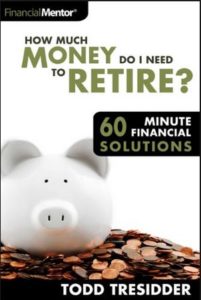The main point of this article is to shine some light on what the elites teach their children juxtaposed with what the working class and poor are taught, i.e rich vs poor education. Any wealth building blueprint is only as good as the person implementing it. Although a certain degree of hand holding is expected, there needs to be ownership for the one implementing the blueprint for it to succeed.
And that is the primary goal here. We want to provide you with the tools needed to navigate the current system to thrive, which is why we do these various book reviews. Because in order to thrive it is often necessary to know the rules and what sets apart the wealthy vs the rest of us.
But you can’t just know the rules. You have to apply the rules. This is a mindset shift, one from scarcity to an abundance mindset.
So what are these rules or principles, you ask? Well, a little background first.
Real Education
The title of this article could also be something like Real Education: How to Take Back Your Mind. The rich vs the poor mindset is strikingly different. To make lasting change, we must change our thoughts, and this starts with having the right ideas.
Credit for the ideas of this article are primarily from John Taylor Gatto, author of such classics as Dumbing us Down and Underground History of American Education.
If you are not familiar with John Gatto, I strongly encourage you to research and read his many books. He also has a large resource of videos on YouTube.
According to Gatto, the four architects of modern forced schooling are Andrew Carnegie, J.P. Morgan, John D. Rockefeller Sr. and Henry Ford. He does not specifically cast the blame on these men, but simply points out that these men had specific goals in implementing our current compulsory education system.
The idea behind education is not so much to educate independent free thinkers (i.e. entrepreneurs) but to mold future employees. In fact, Gatto writes that the primary idea is to create an education system where the pupils think of themselves as an employee competing for the favor of management.
Our education system seeks to create a worker who is a pushover and who lives in a state of constant panic. Fear provides management with the power over its employees, primarily the fear of being laid off because there is no loyalty.
Our education system also equips us with poor decision making ability and a strong desire for consumption. We are programmed for novelty, which is why when the school bell rings we simply ask, “what’s next?”
I have provided a very simplistic view here as Gatto has thousands of pages and hours of lectures on the many shortcomings of our current education system. But hopefully you get the message, which is that our education system is broken.
Money: A Contrast of Ideas
One of the most obvious examples in the disparity between the rich vs poor is how are educated about money.
Supposed personal finance gurus recommend that their adherents focus on paying off debt, growing their net worth, investing with a long term horizon, and protect their income with term insurance.
In contrast, the rich are taught about personal responsibility through the acquisition of cash flow assets, the velocity of money, proper risk mitigation and management, and permanent life insurance strategies.
One set or rules for the poor and another set of rules for the wealthy. It is ultimately the difference between an abundance mindset and one of scarcity. One mindset is focused on collaboration, while the other views everyone else as competition.
Simon Sinek
It is important to point out that there are change makers on the horizon. One specific change maker who champions a different way to do business is Simon Sinek. I have provided a video of Simon Sinek below, where he talks about what true leadership is, such as his principle that “leaders eat last”.
My point in bringing attention to Simon Sinek’s work is that the traditional monolithic business model of the past 100+ years is in danger of being replaced by a new business framework that seeks to, not use people as mere cogs, but shift towards a more compassionate capitalism approach, mixing the corporation’s success with genuine care, concern and loyalty for the well being of its employees.
Education’s End Game
It is important to understand the end game for our current education. Gatto quotes sociologist Edward A. Ross who stated that the plan is underway to replace community, church and family with propaganda, education and mass media. Ross made this statement in 1901 in his book Social Control. Most honest observers can see that this appears to be our current reality.
So, now what? Where do we go from here?
I would say that the road out is a long one and there is no clear path yet. However, there are 14 themes present in elite private school curriculum that we can seek out in our own life and teach to our children that will hopefully prove an antidote to the current sickness we call education.
14 Principles of Elite, Private Schools – John Taylor Gatto
A theory of human nature:
We need to learn persuasion and leadership skills that look to history, philosophy, theology, literature and law to know what human nature is, was and will be. If we have a correct understanding of our fellow man then we will be better equipped to lead.
A strong experience with the active literacies:
Writing and public speaking, specifically persuasive writing and speech, are essential skills to be able to convey a message to our fellow man. The practice of public speaking and of daily writing is key to growing in these literacies.
An insight into the major institutional forms:
An understanding of our court system, military, banks, corporations, government branches, media, etc. has a profound effect on how we view reality. Many in our great country today have a certain “ignorance is bliss” blasé view point of the world. It is a primary reason we are so easily misled and distracted. Instead, we need to pay attention and challenge, learn and grow.
As Gatto so expertly states, “The only possible way to arrive at an approximation of truth is through argument. The more skillfully argument on all sides will be better for the ultimate resolution of truth. So that people, who appear before you in the media and say in this time of trouble, dissent is not wanted, are truly un-American. Because this country was the world’s first laboratory of dissent on the part of everybody. That’s really what the American dream is largely composed of.”
A repeated exercise in the forms of good manners and politeness:
Good manners and politeness are social skills that open doors the impolite and poor mannered will never have access to. Gatto states, “politeness and civility are the foundations of all future relationships.”
Independent work:>
We need to learn and pass on how to be self taught. To be independent learners, capable of researching and applying knowledge from various sources. Gatto points out that in public schools, the teacher fills 90% of time vs elite schools, where the student is ideally independently learning 90% of time.
Energetic physical sports to confer grace on the human presence:
Gatto states that “sports teaches you patience in handling pain and dealing with emergencies which occur regularly in sports.” You learn that you can overcome many difficulties. Sports have a way of teaching us in loss as well as victory.
“Energetic physical sports aren’t a luxury or a way to blow off steam, but they’re absolutely the only way to confer grace on the human presence. And that grace translates into power and into money later on.”
A complete theory of access to any workplace or any person:
Much of life is about who you know. Relationships do matter. As Gatto points out, “You’d be better off, than reading a civics textbook, to set a kid with the challenge of getting a private meeting with the mayor of Los Angeles and let him work, for a year, on constructing an access to the mayor.” By learning and teaching how to gain access to various people you want to meet it can open doors into places you never thought possible.
Responsibility and leadership:
Responsibility is a skill that is lacking in many today. The idea of owning your problems, of “extereme ownership” as Jocko Willick puts it, is true leadership on display.
A personal code of standards:
“Standards in production, standards in behavior, and standards in morality.” We must set forth lifelong personal goals, to create our own life’s mission, to define our soul purpose. We are not simply vessels lost at sea. We are life changers that must practice the disciplined life, focused on always growing and always learning.
A familiarity with the master creations in the arts:
Gatto says that elite schools teach its pupils “to be at ease with the arts. Because apart from religion, the arts are the only way that transcends the animal materiality of our lives, to get in touch with the bigger you.” Appreciating art, dance, literature, music, to be comfortable around the arts and be able to interact with it allow us to, in the words of Thoreau, “live deep and suck out all the marrow of life.”
The power of accurate observation & recording:
To truly “see” a thing or “internalize” it, we must observe, notice, meditate, ruminate, etc. on the thing. This is why memorization of great quotes and religious scripture have such a powerful impact on our thought life.
Gatto enlightens us with an example, stating that “It used to be an axiom among British upper classes that if you could not draw what you saw with your eye you were in fact not seeing what was there. So drawing wasn’t a way to kill time, but a way to sharpen the perception.”
The ability to deal with challenges of all sorts:
We must constantly face fears, be independent, strong and courageous. For example: public speaking; for many this pursuit is a way to push ourselves to overcome weaknesses and fears.
A habit of caution in reasoning to conclusions:
We must have a process of seeking out the facts before coming to conclusions. Ideally, we should get a lot of information before deciding if something is true.
We must independently find information and then decide the veracity of the matter.
We must be cognizant of the fact that we are led by our emotions and that we use logic to justify our emotional conclusions.
Therefore, any system we can create that allows us to go beyond our emotions in search of truth must be created and implemented.
The constant development of testing and judgment:
Live a life of constant testing of your presuppositions. Make sure your assumptions actually prove true when tested. Try and see an issue from another point of view. Be able to articulate the counter position to your position. Once again, always be learning, always be growing in every way, mentally, physically, spiritually, emotionally and financially.
Conclusion
So there you have some awesome principles to live by and to teach future generations. Don’t be a sheeple and blindly follow the crowd. Ask questions and seek answers. That is the key to true wealth building and legacy creation.



